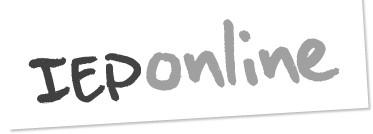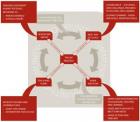The IEP Process
Like all curriculum design in New Zealand, the IEP process is “a continuous, cyclic process” (The New Zealand Curriculum, page 37).
It brings together a team of people closely involved with the student to collaboratively plan a programme to meet the student’s needs.
Full size version of the diagram
Teach and learn
Every aspect of the curriculum is important for students with special education needs.
Access information on how to adapt teaching, learning materials, and the school and classroom environment.
Find out how to differentiate the content of the school and classroom curriculum so that students experience success.
Assess, review and report
Assessment is a process of learning for learning. It helps to plan next teaching and learning steps.
See some assessment examples that involve the student commenting on their own work.
Agree and plan
Students with special education needs (as all students) make progress when those who know them best, plan, and work together.
Planning includes agreeing the next steps for teaching and learning.
Meet and set goals
Although IEP team meetings are only a small part of the IEP process, the team needs to agree on team processes, who is involved (while considering meeting size), and how the student is best involved.
Find tips and tools to help with the tasks required before, during and after an IEP meeting.


